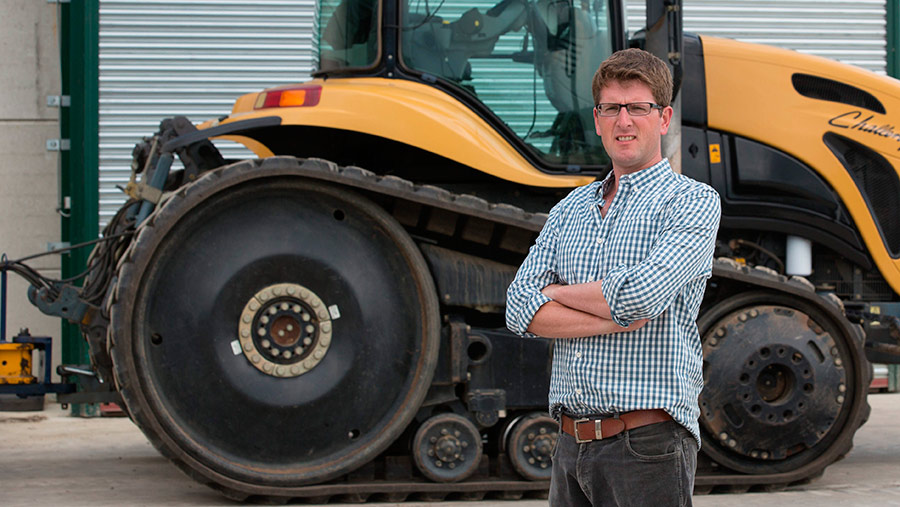Farmer Focus: Direct drilling makes life easier for hare coursers
 © TIm Scrivener
© TIm Scrivener Another year, another game of patience. I have never seen the parish and surrounding area look so bare at this time of year, with spring crops being the order of the day.
This year I am bucking the trend and planting a larger percentage of winter wheat than I have done for five years.
Time will tell whether it will all make it to harvest, but with very little blackgrass in the spring beans and subsequent stubble, it seemed an opportune time to get back to some level of rotational normality.
See also: Read more from our Arable Farmer Focus writers
The problem with delaying the wheat drilling is not that it delays the start to my winter sabbatical.
It is all very well drinking gin and tonics on the lawn on warm September afternoons, but when you know you are going to be drilling in your wellies with the collar of your overcoat turned up, it becomes somewhat less appealing.
So much so that I have come up with a new way of determining a field’s suitability to be drilled; if you have to scrape the soil from your boots when re-entering the tractor cab, it is time to go home and find the gin bottle.
Since the autumn equinox we have had our annual influx of hare coursers, who appear to have been actively recruiting more members over the summer.
A disadvantage of direct drilling is that by leaving stubbles untouched, the coursers find it easier to drive over the fields. If there was ever a case for growing large cover crops, thwarting hare coursers could be it.
After many futile calls to the local constabulary, who tend to be busy or uninterested, you ask for a crime number, only to be given an incident number with the explanation: “It has not been proved that a crime has been committed.”
Loosely translated, this reads as: “A crime number is included in our statistics, an incident number is not.”
So the steel has been delivered and the barriers will be constructed as soon as my patience finally gives way and I drill the historically worst blackgrass fields.
Will Howe farms 384ha of medium to heavy land at Ewerby Thorpe Farm, near Sleaford, Lincolnshire. He mainly grows spring crops and also manages a further 200ha on contract.

